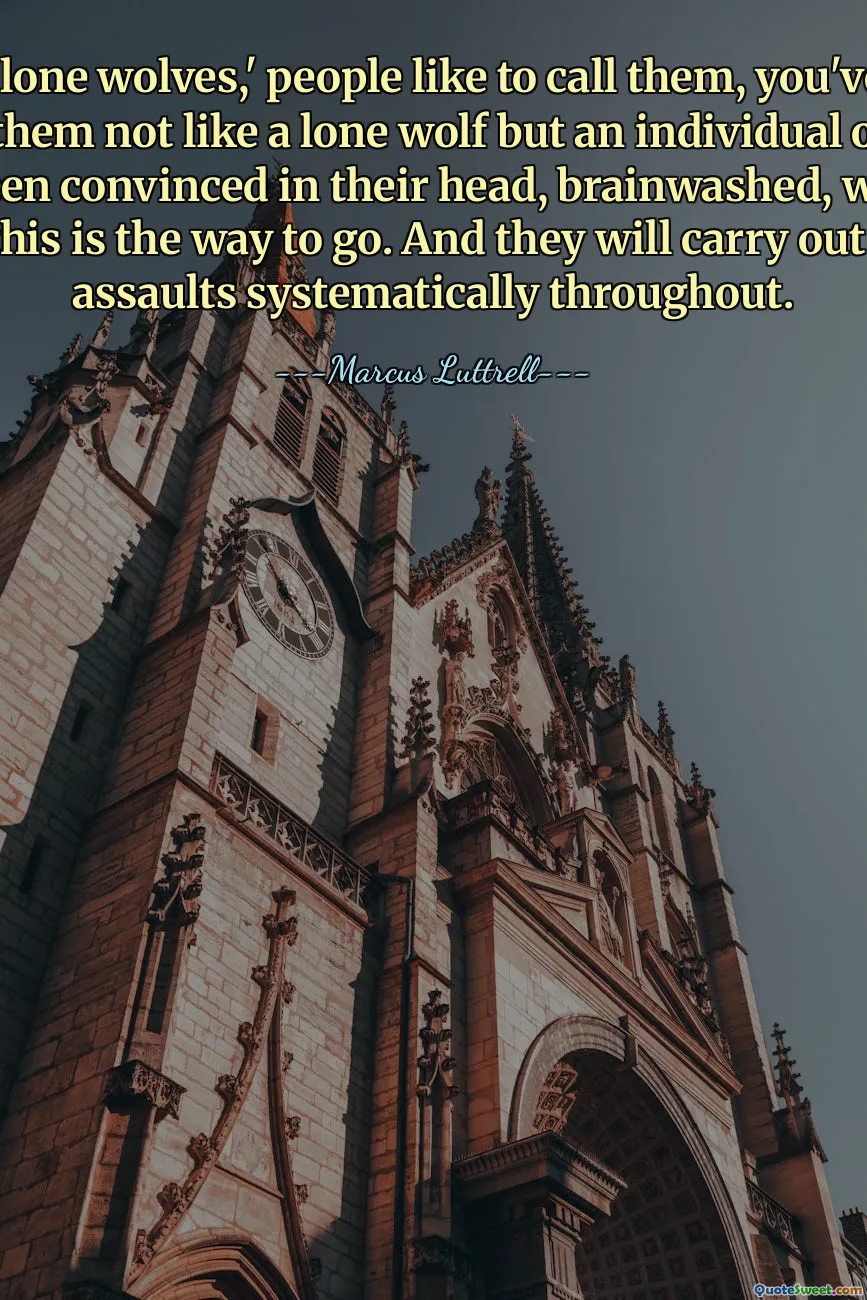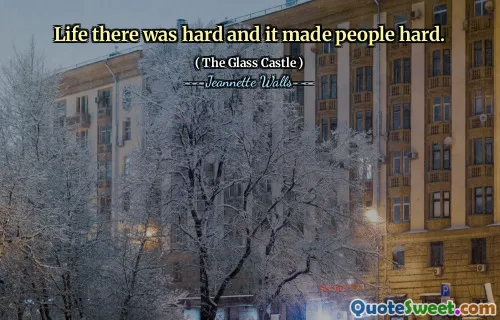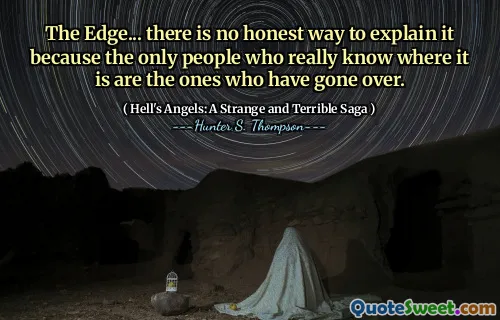
These 'lone wolves,' people like to call them, you've got to look at them not like a lone wolf but an individual operator who's been convinced in their head, brainwashed, whatever, that this is the way to go. And they will carry out their assaults systematically throughout.
This quote sheds light on the complex nature of lone actor threats in the realm of security and counterterrorism. Often, society perceives these individuals as isolated entities, acting alone and detached from larger networks. However, the reality is more nuanced. The speaker emphasizes that such individuals are not truly solitary but are motivated and convinced by ideology, manipulation, or psychological persuasion. This underscores the importance of understanding the root causes behind radicalization and the methods used to influence these lone operators. Unlike organized groups, these actors operate without direct direct supervision, which makes detection and prevention challenging. Their systematic approach to carrying out assaults suggests a degree of premeditation and planning, often driven by internal conviction or external pressures. Recognizing that these threats are not simply the result of personal resentment or mental illness but are often induced through powerful narratives highlights the need for early intervention and counter-element strategies. Moreover, understanding their mindset helps in developing more effective responses, from intelligence gathering to community outreach, aimed at preventing radicalization at the individual level. It also calls for a shift away from stereotype-driven perceptions and towards a more informed, nuanced approach in security policies and social interventions. Ultimately, the quote invites us to see these individuals as products of larger systems of influence, emphasizing the importance of addressing underlying vulnerabilities in society to mitigate such threats effectively.











